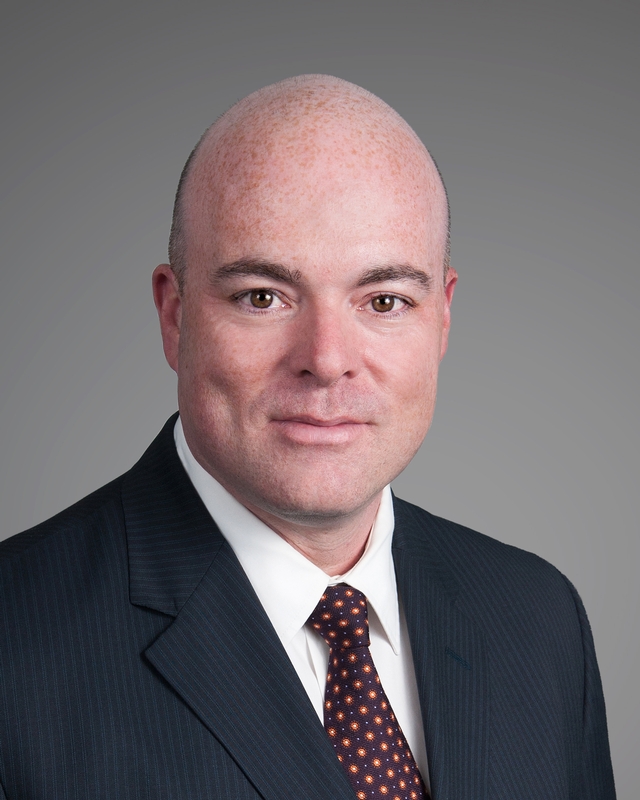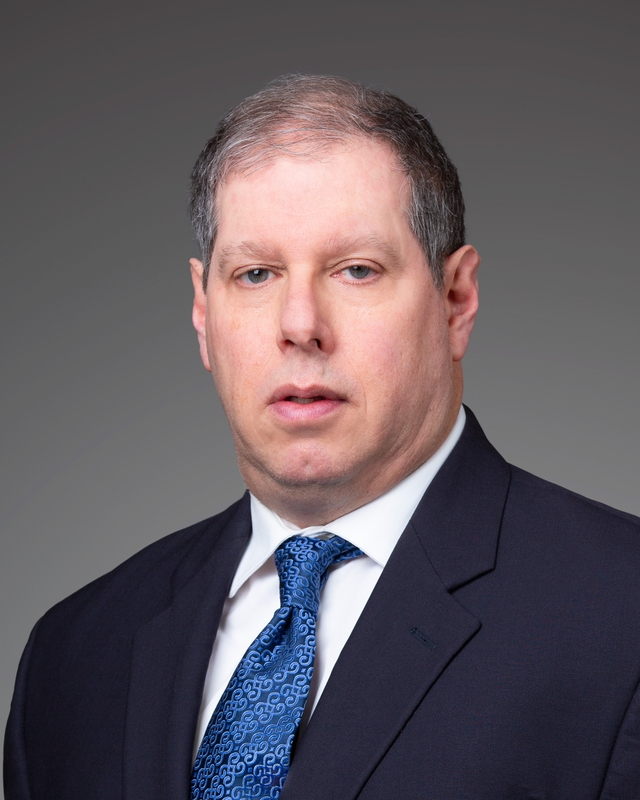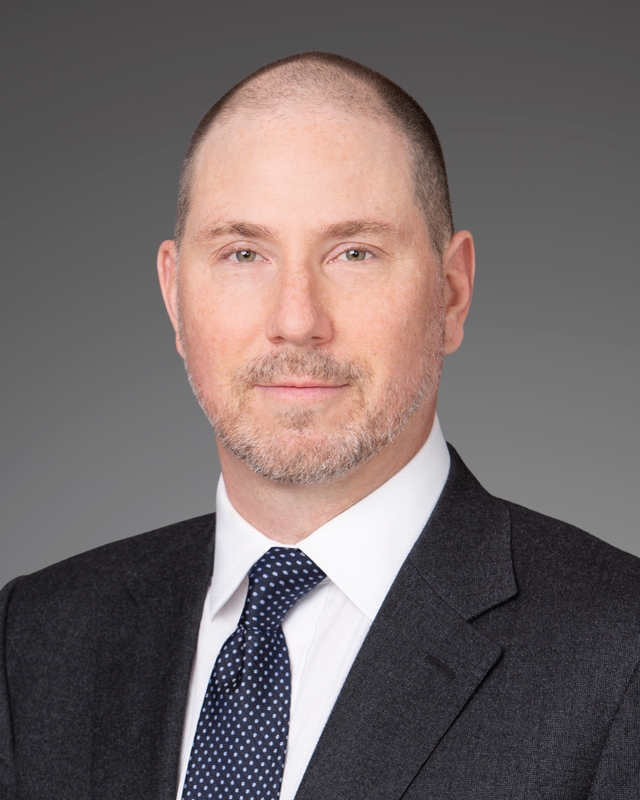News

10/10/13 | Articles and TV
Kirby McInerney Profiled in Law360’s Most Feared Plaintiffs Firms List
Published in: Law360
By Stewart Bishop
Law360, October 10, 2013, New York -- Powered by a hard-hitting securities practice that took in nearly a billion dollars for its clients last year, Kirby McInerney LLP has recently racked up an impressive series of wins, including the landmark $590 million settlement of a securities class action targeting Citigroup Inc., earning it a spot on Law360's Most Feared Plaintiffs Firms list.
Founded over 65 years ago by Stanley Kaufman, one of the early staff attorneys for the U.S. Securities and Exchange Commission, the firm's bread and butter is definitely securities litigation, but it has since expanded its reach to include thriving antitrust, structured finance, consumer protection, whistleblower and health care practices, according to partner and managing committee member Peter S. Linden.
Based in New York, with another office in San Diego, the 25 attorneys that make up the firm come from varied backgrounds across the legal profession, a strength which Linden says enables the firm to adapt to all manner of litigation.
“We pride ourselves on the experience level of our attorneys as well as our attention to client service and our ability to develop and bring cases,” Linden said. “We're not just following regulatory actions, bringing a 'me too' lawsuit, we're developing cases on our own.”
While a relatively small firm in comparison to the imposing members of the defense bar it often comes up against, Kirby McInerney says its meticulous investigative work leads it to develop innovative strategies sometimes overlooked by regulators and others that translate into serious recoveries for clients.
Nowhere is that more evident than in the firm's work as lead counsel for noninstitutional investors suing Citigroup over alleged misinformation about the bank's exposure to toxic collateralized debt obligations in the run up to the financial crisis, in which the firm helped achieve one of the top five largest securities class action settlements stemming from the meltdown.
The suit alleged that Citigroup committed securities fraud by making misstatements and omissions regarding the company's CDO holdings.
In a 547-page amended complaint, Kirby McInerney argued that Citigroup knowingly understated the risks it faced and overstated the value of its assets, misleading investors about the company's financial health and causing them to suffer damages when the truth about the financial giant's assets was finally revealed.
Kirby McInerney partner Ira M. Press said the mammoth pleading laid the groundwork for the suit's eventual success, as it went into exhaustive detail about Citigroup's CDOs, the subprime mortgages that backed up much of the Byzantine world of the bank's financial instruments, and how Citigroup distorted and concealed the extent of its ownership of these toxic assets.
“It was obviously a massive undertaking,” Press said. “We knew it was a challenge, several similar cases had been dismissed and the judge was not one in recent years who had been big on denying motions to dismiss securities fraud class actions.”
U.S. District Judge Sidney H. Stein, however, broke with recent tradition and left the investors' CDO-related claims intact, finding that the firm had adequately pled that Citigroup knew about the risk of its holdings and concealed this fact from the market, despite strong resistance from securities heavyweights and Citigroup counsel Paul Weiss Rifkind Wharton & Garrison LLP. The $590 million settlement that followed is awaiting final approval.
In another win for the firm, Kirby McInerney represented lead plaintiff Skandia Life Insurance Co. Ltd. in a shareholder derivative action targeting the top brass at Pfizer Inc., shortly after the company agreed to pay $2.3 billion in criminal and civil fines related to off-label promotion of drugs such as Bextra, Geodon, Zyvox and Lyrica.
Pfizer had been on the ropes with the U.S. Department of Justice related to illegal marketing of several drugs which led to a number of pledges to fix problems internally, but those deals ultimately went nowhere, Kirby McInerney partner David E. Kovel said.
Working with lead counsel Bernstein Litowitz Berger & Grossmann LLP, Kirby McInerney pointed to previous settlements of actions brought over off-label marketing, violation notices and warning letters from the U.S. Food and Drug Administration, as well as whistleblower suits that constituted a series of red flags that put directors and executives on notice that the ongoing misconduct was systemic and widespread.
In July 2010, a court found the plaintiffs had pled with sufficient particularity that a majority of the directors faced a substantial likelihood of personal liability since they deliberately disregarded the many reports of illegal marketing. The Pfizer directors soon capitulated and agreed to a $75 million settlement agreement that included a profound restructuring of the drugmaker's compliance program and pay structure.
“It was one of these turning point kind of cases, we were able to get a committee within Pfizer just to work on compliance issues,” Kovel said. “We were able to have a voice in how that would be structured and we were able to get Pfizer to fund it.”
Kovel and his fellow counsel also managed to get an internal ombudsman program established for employees to report their concerns and a review of Pfizer's compensation regime for its marketing workers.
“Part of the problem was they paid their marketers for any kind of sale, off-label or otherwise,” Kovel said.
It was a characteristically original result for a firm that has earned praise for its habit of thinking outside the box in cases large and small.
Former client Michael Singer, now CEO of hedge fund sponsor Ramius LLC, retained Kirby McInerney partner Daniel Hume for a number of securities-related actions, and said what he admires about Hume's representation is his disdain for litigation theatrics common among some other plaintiffs firms and his ability to come up with innovative tactics.
“Some other lawyers, they yell and scream and look to settle,” Singer said. “What I like about Dan is there's less drama and more creativity. He's a competitive guy and he outsmarts people. I'd hire him again.”
It's that kind of ability to adapt to an ever-changing legal environment and to come up with inventive ways to develop cases that the firm's attorneys say sets Kirby McInerney apart.
Press said with securities law constantly evolving, it's becoming harder for investors to obtain recoveries for their losses, which is why the firm is constantly working to respond to those changes and develop creative ways to ensure there's always a mechanism in place to keep the misinformation that gets fed to shareholders in check.
“It's not only for our clients' recovery, but it's for the integrity of the capital markets,” Press said. “When you don't have confidence in what management is saying, capital markets don't work.”
--Additional reporting by Max Stendahl. Editing by Andrew Park.
Law360, October 10, 2013, New York -- Powered by a hard-hitting securities practice that took in nearly a billion dollars for its clients last year, Kirby McInerney LLP has recently racked up an impressive series of wins, including the landmark $590 million settlement of a securities class action targeting Citigroup Inc., earning it a spot on Law360's Most Feared Plaintiffs Firms list.
Founded over 65 years ago by Stanley Kaufman, one of the early staff attorneys for the U.S. Securities and Exchange Commission, the firm's bread and butter is definitely securities litigation, but it has since expanded its reach to include thriving antitrust, structured finance, consumer protection, whistleblower and health care practices, according to partner and managing committee member Peter S. Linden.
Based in New York, with another office in San Diego, the 25 attorneys that make up the firm come from varied backgrounds across the legal profession, a strength which Linden says enables the firm to adapt to all manner of litigation.
“We pride ourselves on the experience level of our attorneys as well as our attention to client service and our ability to develop and bring cases,” Linden said. “We're not just following regulatory actions, bringing a 'me too' lawsuit, we're developing cases on our own.”
While a relatively small firm in comparison to the imposing members of the defense bar it often comes up against, Kirby McInerney says its meticulous investigative work leads it to develop innovative strategies sometimes overlooked by regulators and others that translate into serious recoveries for clients.
Nowhere is that more evident than in the firm's work as lead counsel for noninstitutional investors suing Citigroup over alleged misinformation about the bank's exposure to toxic collateralized debt obligations in the run up to the financial crisis, in which the firm helped achieve one of the top five largest securities class action settlements stemming from the meltdown.
The suit alleged that Citigroup committed securities fraud by making misstatements and omissions regarding the company's CDO holdings.
In a 547-page amended complaint, Kirby McInerney argued that Citigroup knowingly understated the risks it faced and overstated the value of its assets, misleading investors about the company's financial health and causing them to suffer damages when the truth about the financial giant's assets was finally revealed.
Kirby McInerney partner Ira M. Press said the mammoth pleading laid the groundwork for the suit's eventual success, as it went into exhaustive detail about Citigroup's CDOs, the subprime mortgages that backed up much of the Byzantine world of the bank's financial instruments, and how Citigroup distorted and concealed the extent of its ownership of these toxic assets.
“It was obviously a massive undertaking,” Press said. “We knew it was a challenge, several similar cases had been dismissed and the judge was not one in recent years who had been big on denying motions to dismiss securities fraud class actions.”
U.S. District Judge Sidney H. Stein, however, broke with recent tradition and left the investors' CDO-related claims intact, finding that the firm had adequately pled that Citigroup knew about the risk of its holdings and concealed this fact from the market, despite strong resistance from securities heavyweights and Citigroup counsel Paul Weiss Rifkind Wharton & Garrison LLP. The $590 million settlement that followed is awaiting final approval.
In another win for the firm, Kirby McInerney represented lead plaintiff Skandia Life Insurance Co. Ltd. in a shareholder derivative action targeting the top brass at Pfizer Inc., shortly after the company agreed to pay $2.3 billion in criminal and civil fines related to off-label promotion of drugs such as Bextra, Geodon, Zyvox and Lyrica.
Pfizer had been on the ropes with the U.S. Department of Justice related to illegal marketing of several drugs which led to a number of pledges to fix problems internally, but those deals ultimately went nowhere, Kirby McInerney partner David E. Kovel said.
Working with lead counsel Bernstein Litowitz Berger & Grossmann LLP, Kirby McInerney pointed to previous settlements of actions brought over off-label marketing, violation notices and warning letters from the U.S. Food and Drug Administration, as well as whistleblower suits that constituted a series of red flags that put directors and executives on notice that the ongoing misconduct was systemic and widespread.
In July 2010, a court found the plaintiffs had pled with sufficient particularity that a majority of the directors faced a substantial likelihood of personal liability since they deliberately disregarded the many reports of illegal marketing. The Pfizer directors soon capitulated and agreed to a $75 million settlement agreement that included a profound restructuring of the drugmaker's compliance program and pay structure.
“It was one of these turning point kind of cases, we were able to get a committee within Pfizer just to work on compliance issues,” Kovel said. “We were able to have a voice in how that would be structured and we were able to get Pfizer to fund it.”
Kovel and his fellow counsel also managed to get an internal ombudsman program established for employees to report their concerns and a review of Pfizer's compensation regime for its marketing workers.
“Part of the problem was they paid their marketers for any kind of sale, off-label or otherwise,” Kovel said.
It was a characteristically original result for a firm that has earned praise for its habit of thinking outside the box in cases large and small.
Former client Michael Singer, now CEO of hedge fund sponsor Ramius LLC, retained Kirby McInerney partner Daniel Hume for a number of securities-related actions, and said what he admires about Hume's representation is his disdain for litigation theatrics common among some other plaintiffs firms and his ability to come up with innovative tactics.
“Some other lawyers, they yell and scream and look to settle,” Singer said. “What I like about Dan is there's less drama and more creativity. He's a competitive guy and he outsmarts people. I'd hire him again.”
It's that kind of ability to adapt to an ever-changing legal environment and to come up with inventive ways to develop cases that the firm's attorneys say sets Kirby McInerney apart.
Press said with securities law constantly evolving, it's becoming harder for investors to obtain recoveries for their losses, which is why the firm is constantly working to respond to those changes and develop creative ways to ensure there's always a mechanism in place to keep the misinformation that gets fed to shareholders in check.
“It's not only for our clients' recovery, but it's for the integrity of the capital markets,” Press said. “When you don't have confidence in what management is saying, capital markets don't work.”
--Additional reporting by Max Stendahl. Editing by Andrew Park.
Subscribe



